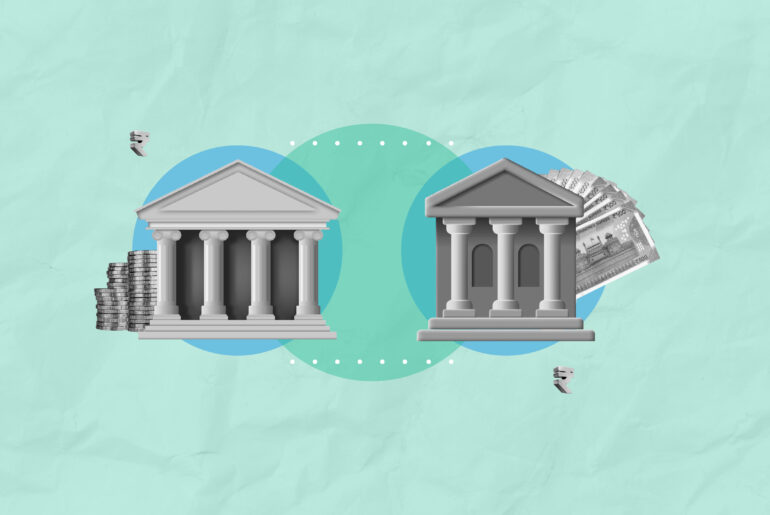Last Updated on Jun 30, 2022 by Anjali Chourasiya
The second quarter of the financial year 2022-2023 begins tomorrow. A new quarter is bringing new changes that might impact your money matters. From credit card rules to tax on cryptocurrencies, from Permanent Account Number (PAN)-Aadhaar linking to influencers’ freebies, a host of new financial rules are about to set in. Make sure you read all the rules to plan your financial moves before the morning of 1 July 2022. Let’s dig in.
Key financial rules to be implemented from 1 July 2022
Here are five new financial rules that will be implemented from 1 July 2022.
New credit card rules
There are several changes in the credit card universe. The Reserve Bank of India (RBI) has announced that credit card companies cannot send unwanted cards to customers. These new rules also involve the change in the credit card billing cycle. From 1 July 2022, cardholders will have a one-time option to customise their current credit card’s billing cycle to bring flexibility to the system.
Further, if a bank or Non-Banking Financial Corporation (NBFC) doesn’t close an account within seven working days after the customer requests, they are liable to pay Rs. 500 each day to the customer until the account is closed. Moreover, if a customer is not using their credit card for more than a year, the bank may close it, provided there are no outstanding balances.
PAN-Aadhaar linking is necessary
Those who have not yet linked their PAN and Aadhaar will have to pay a fine of Rs. 1,000 if they try to link the documents from 1 July 2022. If anyone links their PAN and Aadhaar after 31 March 2022 and by 30 June 2022, the penalty is Rs. 500. The Central Board of Direct Taxes (CBDT) has extended the deadline to link PAN and Aadhaar to March 2023, previously set to 30 June 2022. However, now the people will have to pay a double fine.
Doctors, influencers beware
If you are a doctor or a social media influencer, the freebies you receive are not freebies anymore. A new income tax rule that will come into effect on 1 July 2022 states that 10% of Tax Deducted at Source (TDS) is mandatory on the freebies received from sales promotions. Finance Act 2022 added a new section, 194R, to the Income-Tax Act, 1961. According to it, if a social media influencer receives a product such as a car, mobile phone, outfits, cosmetics, and so on from a company, they are liable to pay 10% TDS on the received items.
Similarly, if a doctor receives free samples from a company, they are also liable to pay the tax. However, if an influencer or doctor returns the product to the company after using the services, it does not fall under Section 194R. Furthermore, if the value of the benefit does not exceed Rs. 20,000 during the financial year, the TDS will not apply.
If a doctor is an employee of a hospital and receiving freebies, the act requires the tax to be deducted from the hospital. The benefits are provided to the doctor because they are an employee of the hospital. The amount deducted from the hospital is then allowed for deduction as salary expenditure. Thus, ultimately the amount will get taxed by the employee and not from the hospital.
Tax on cryptocurrencies
The Union Budget 2022-2023 introduced TDS on Virtual Digital Assets (VDA) or crypto assets transactions. Finance Minister Nirmala Sitharaman has announced that the payments made on the transfer of VDA from 1 July 2022 will attract a 1% TDS. This move comes after the Government imposed a 30% flat income tax on profits arising from cryptocurrencies from 1 April 2022.
The CBDT has issued detailed guidelines on levying TDS on crypto assets. As per them, the tax will be deducted when the transactions exceed more than Rs. 10,000. The threshold limit for TDS deducted is Rs. 50,000 for specified persons.
Further, it will be deducted at the time of the credit of the amount or at the time of payment to the resident individual, whichever is earlier. The CBDT has also clarified that the person making the payment to the seller (a buyer, an exchange, or a broker) has to deduct TDS. It has to be deducted from the selling price.
KYC – Demat go hand-in-hand
The Securities and Exchange Board of India (SEBI) has moved the deadline for Know Your Customer (KYC) updation of Demat and trading account to 30 June 2022 from 31 March 2022. Getting your KYC done is mandatory to access your accounts uninterrupted and keep them active.
If users fail to complete their KYC before or by 30 June 2022, their account will be deactivated. The KYC attributes that a user needs to update are:
- Name
- Address
- PAN
- Valid mobile number
- Valid email ID
- Income range
All six KYC attributes are mandatory for new accounts opened from 1 June 2021.
Conclusion
The month of July is bringing a lot of changes. Ensure you comply with the rules. Otherwise, you might lose your accounts or have to pay the penalty. Remember to get KYC done for your Demat account, link your PAN and Aadhaar, and beware of too many freebies if you are an influencer or a doctor. Meanwhile, you can stay updated with the market, learn about finance, and research about investment instruments at Blog by Tickertape.




